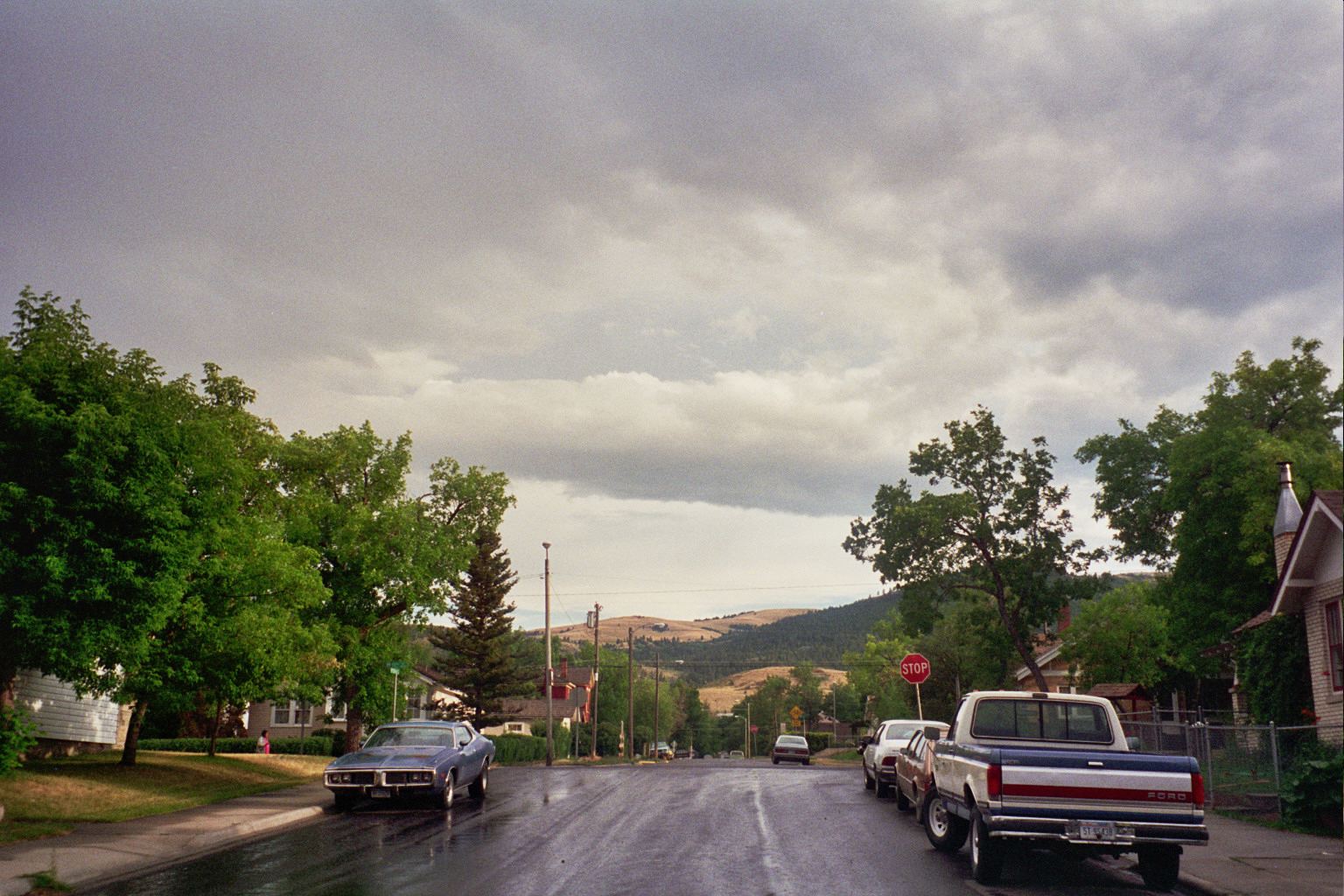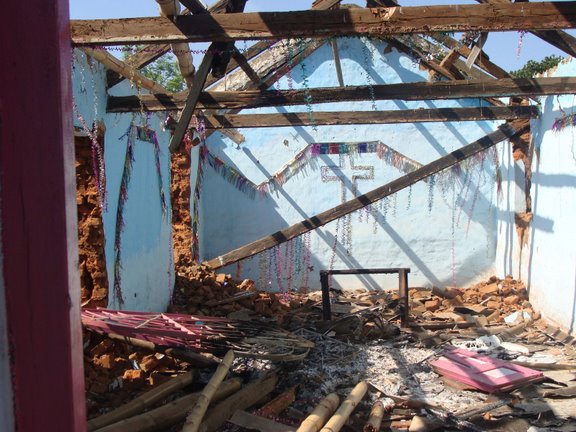|
Kalofer Massacre
The Kalofer massacre () was the massacre of a total of 618 civilian Bulgarians, accompanied by the looting and arson of the village of Kalofer, suffered in two waves at the hands of Circassian bashi-bazouk in the course of July 1877, as part of the Russo-Turkish War (1877-1878). Events The Circassians The town was initially surrounded by a bashi-bazouk unit led by Silimi Pasha, in the beginning of July 1877. The townsmen quickly collected a ransom of some 800 Ottoman lira and a hefty deal of the town's best rose oil. Evidently dissatisfied with the offer, the bashi-bozouk engaged in plunder and looting of the town until a messenger from Kazanlak got in touch with Russian Prince Aleksey Tsereteli, who managed to broker the withdrawal of the Circssians. Russians On , approx. 37 Cossack soldiers and 30 Bulgarian volunteers came to Kalofer to help capture run-away Ottoman soldiers from the Ottoman defeat at the Shipka pass, Then the Russian forces left it to the citizens of Kalofe ... [...More Info...] [...Related Items...] OR: [Wikipedia] [Google] [Baidu] |
Kalofer
Kalofer ( pronounced:) is a town in central Bulgaria, located on the banks of the Tundzha between the Balkan Mountains to the north and the Sredna Gora to the south. Kalofer is part of Plovdiv Province and the Karlovo municipality. It is best known as the birthplace of Bulgarian poet and revolutionary Hristo Botev. The modern settlement of Kalofer emerged in the 16th century, managing to preserve its Bulgarian character in the Ottoman Empire and to develop as a centre of craftsmanship, primarily cord production. The Kalofer monastery has been in operation since 1640 and the convent since 1700. During the Bulgarian National Revival the town became a centre of revolutionary activity, being the birthplace of figures such as Hristo Botev, Joseph I of Bulgaria, Exarch Joseph, Dimitar Panichkov, and Nikola Ivanov. Today, it is best known for the imposing Hristo Botev Monument (one of many in the country). Geography Kalofer is located in the southern outskirts of Stara Planina. It is ... [...More Info...] [...Related Items...] OR: [Wikipedia] [Google] [Baidu] |
Batak Massacre
The Batak massacre was a massacre of Bulgarians in the town of Batak by Ottoman irregular cavalry troops in 1876, at the beginning of the Bulgarian April Uprising of 1876. The estimate for the number of casualties ranges from 1,200 to 8,000, depending on source, with the most common estimate being 5,000 casualties. The indiscriminate slaughter of non-combatant civilians at Batak shocked the general public in Western Europe and came to be known in the press as the ''Bulgarian Horrors'' and the ''Crime of the Century''. The scale of the atrocities caused British commissioner Walter Baring, who had been dispatched by the British embassy in Constantinople to verify the events, to describe the tragedy "''as perhaps the most heinous crime that has stained the history of the present century''". The events at Batak caused a public outcry across Europe, mobilized ordinary people and famous intellectuals to demand a reform of the Ottoman model of governance of the Bulgarian lands, ... [...More Info...] [...Related Items...] OR: [Wikipedia] [Google] [Baidu] |
Looting In Europe
Looting is the act of stealing, or the taking of goods by force, typically in the midst of a military, political, or other social crisis, such as war, natural disasters (where law and civil enforcement are temporarily ineffective), or rioting. The proceeds of all these activities can be described as booty, loot, plunder, spoils, or pillage. Looting by a victorious army during war has been a common practice throughout recorded history. In the wake of the Napoleonic Wars and particularly after World War II, norms against wartime plunder became widely accepted. In modern armed conflicts, looting is prohibited by international law, and constitutes a war crime.Rule 52. Pillage is prohibited. ''Customary IHL Database'', |
Fires In Bulgaria
Fire is the rapid oxidation of a fuel in the exothermic chemical process of combustion, releasing heat, light, and various reaction products. Flames, the most visible portion of the fire, are produced in the combustion reaction when the fuel reaches its ignition point temperature. Flames from hydrocarbon fuels consist primarily of carbon dioxide, water vapor, oxygen, and nitrogen. If hot enough, the gases may become ionized to produce plasma. The color and intensity of the flame depend on the type of fuel and composition of the surrounding gases. Fire, in its most common form, has the potential to result in conflagration, which can lead to permanent physical damage. It directly impacts land-based ecological systems worldwide. The positive effects of fire include stimulating plant growth and maintaining ecological balance. Its negative effects include hazards to life and property, atmospheric pollution, and water contamination. When fire removes protective vegetation, heavy r ... [...More Info...] [...Related Items...] OR: [Wikipedia] [Google] [Baidu] |
Residential Building Arson Attacks In Europe
A residential area is a land used in which housing predominates, as opposed to industrial and commercial areas. Housing may vary significantly between, and through, residential areas. These include single-family housing, multi-family residential, or mobile homes. Zoning for residential use may permit some services or work opportunities or may totally exclude business and industry. It may permit high density land use or only permit low density uses. Residential zoning usually includes a smaller FAR (floor area ratio) than business, commercial or industrial/manufacturing zoning. The area may be large or small. Overview In certain residential areas, especially rural, large tracts of land may have no services whatever, such that residents seeking services must use a motor vehicle or other transportation, so the need for transportation has resulted in land development following existing or planned transport infrastructure such as rail and road. Development patterns may be regul ... [...More Info...] [...Related Items...] OR: [Wikipedia] [Google] [Baidu] |
Massacres Of The Russo-Turkish War (1877–1878)
A massacre is an event of killing people who are not engaged in hostilities or are defenseless. It is generally used to describe a targeted killing of civilians en masse by an armed group or person. The word is a loan of a French term for "butchery" or "carnage". Other terms with overlapping scope include war crime, pogrom, mass killing, mass murder, and extrajudicial killing. Etymology ''Massacre'' derives from late 16th century Middle French word ''macacre'' meaning "slaughterhouse" or "butchery". Further origins are dubious, though the word may be related to Latin ''macellum'' "provisions store, butcher shop". The Middle French word ''macecr'' "butchery, carnage" is first recorded in the late 11th century. Its primary use remained the context of animal slaughter (in hunting terminology referring to the head of a stag) well into the 18th century. The use of ''macecre'' "butchery" of the mass killing of people dates to the 12th century, implying people being "slaughtered ... [...More Info...] [...Related Items...] OR: [Wikipedia] [Google] [Baidu] |
Persecution Of Eastern Orthodox Christians
The persecution of Eastern Orthodox Christians is the religious persecution which has been faced by the clergy and the adherents of the Eastern Orthodox Church. Eastern Orthodox Christians have been persecuted during various periods in the history of Christianity when they lived under the rule of non-Orthodox Christian political structures. In modern times, anti-religious political movements and regimes in some countries have held an anti-Orthodox stance. Catholic activities in early modern Europe Polish–Lithuanian Commonwealth During the end of the 16th century, under the influence of the Catholic Counter-Reformation, rising pressures towards Eastern Orthodox Christians in White Ruthenia and other eastern parts of Polish–Lithuanian Commonwealth led to the enforcement of the Union of Brest in 1595–96. Until that time, many Lytvyns and Ruthenians who lived under the rule of Polish–Lithuanian Commonwealth were Eastern Orthodox Christians. Their hierarchs gathered i ... [...More Info...] [...Related Items...] OR: [Wikipedia] [Google] [Baidu] |
Massacres Of Bulgarians
A massacre is an event of killing people who are not engaged in hostilities or are defenseless. It is generally used to describe a targeted killing of civilians en masse by an armed group or person. The word is a loan of a French term for "butchery" or "carnage". Other terms with overlapping scope include war crime, pogrom, mass killing, mass murder, and extrajudicial killing. Etymology ''Massacre'' derives from late 16th century Middle French word ''macacre'' meaning "slaughterhouse" or "butchery". Further origins are dubious, though the word may be related to Latin ''macellum'' "provisions store, butcher shop". The Middle French word ''macecr'' "butchery, carnage" is first recorded in the late 11th century. Its primary use remained the context of animal slaughter (in hunting terminology referring to the head of a stag) well into the 18th century. The use of ''macecre'' "butchery" of the mass killing of people dates to the 12th century, implying people being "slaughtered ... [...More Info...] [...Related Items...] OR: [Wikipedia] [Google] [Baidu] |
1877 In Bulgaria
Events January * January 1 – Queen Victoria is proclaimed Empress of India by the Royal Titles Act 1876, introduced by Benjamin Disraeli, the Prime Minister of the United Kingdom . * January 8 – Great Sioux War of 1876: Battle of Wolf Mountain – Crazy Horse and his warriors fight their last battle with the United States Cavalry in Montana. * January 20 – The Conference of Constantinople ends, with Ottoman Turkey rejecting proposals of internal reform and Balkan provisions. * January 29 – The Satsuma Rebellion, a revolt of disaffected samurai in Japan, breaks out against the new imperial government; it lasts until September, when it is crushed by a professionally led army of draftees. February * February 17 – Major General Charles George Gordon of the British Army is appointed Governor-General of the Sudan. March * March 2 – Compromise of 1877: The 1876 United States presidential election is resolved with the selection of Rutherfor ... [...More Info...] [...Related Items...] OR: [Wikipedia] [Google] [Baidu] |
Anti-Christian Sentiment In Bulgaria
Anti-Christian graffiti from the Alexamenos graffito">Alexamenos worships his god.") Anti-Christian sentiment, also referred to as Christianophobia or Christophobia, is the fear, hatred, discrimination, or prejudice against Christians and/or aspects of the Christian religion's practices. These terms encompass "every form of discrimination and intolerance against Christians". The presence of anti-Christian sentiment has frequently led to the persecution of Christians throughout history. Antiquity Evidence shows that anti-Christian sentiment was already present as early as the Roman Empire during the first century AD. The steady growth of the Christian movement was viewed with suspicion by both the authorities and the people of Rome leading to the persecution of Christians in the Roman Empire. During the second century, Christianity was viewed as a negative movement in two ways: both due to accusations made against adherents of the Christian faith in accordance with the principles ... [...More Info...] [...Related Items...] OR: [Wikipedia] [Google] [Baidu] |
Massacres In Bulgaria
A massacre is an event of killing people who are not engaged in hostilities or are defenseless. It is generally used to describe a targeted killing of civilians en masse by an armed group or person. The word is a loan of a French term for "butchery" or "carnage". Other terms with overlapping scope include war crime, pogrom, mass killing, mass murder, and extrajudicial killing. Etymology ''Massacre'' derives from late 16th century Middle French word ''macacre'' meaning "slaughterhouse" or "butchery". Further origins are dubious, though the word may be related to Latin ''macellum'' "provisions store, butcher shop". The Middle French word ''macecr'' "butchery, carnage" is first recorded in the late 11th century. Its primary use remained the context of animal slaughter (in hunting terminology referring to the head of a stag) well into the 18th century. The use of ''macecre'' "butchery" of the mass killing of people dates to the 12th century, implying people being "slaughtered ... [...More Info...] [...Related Items...] OR: [Wikipedia] [Google] [Baidu] |






